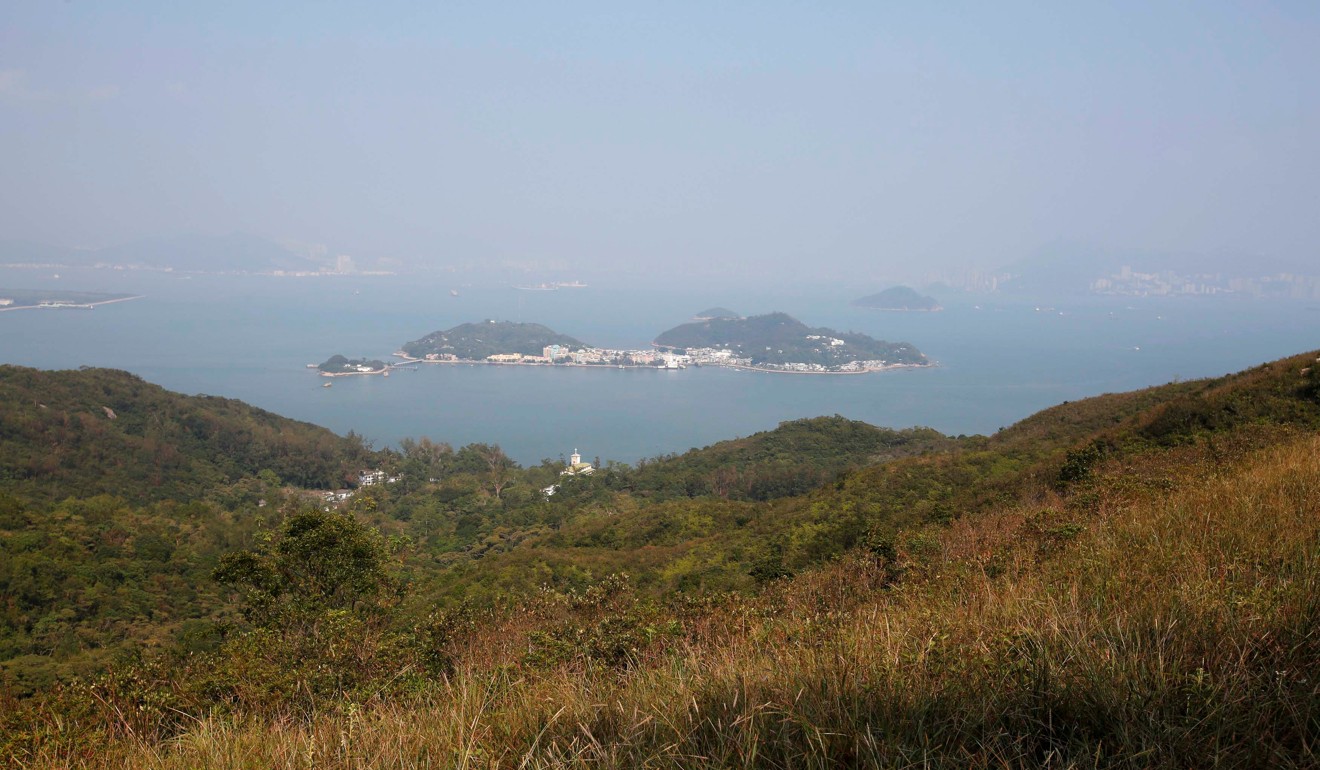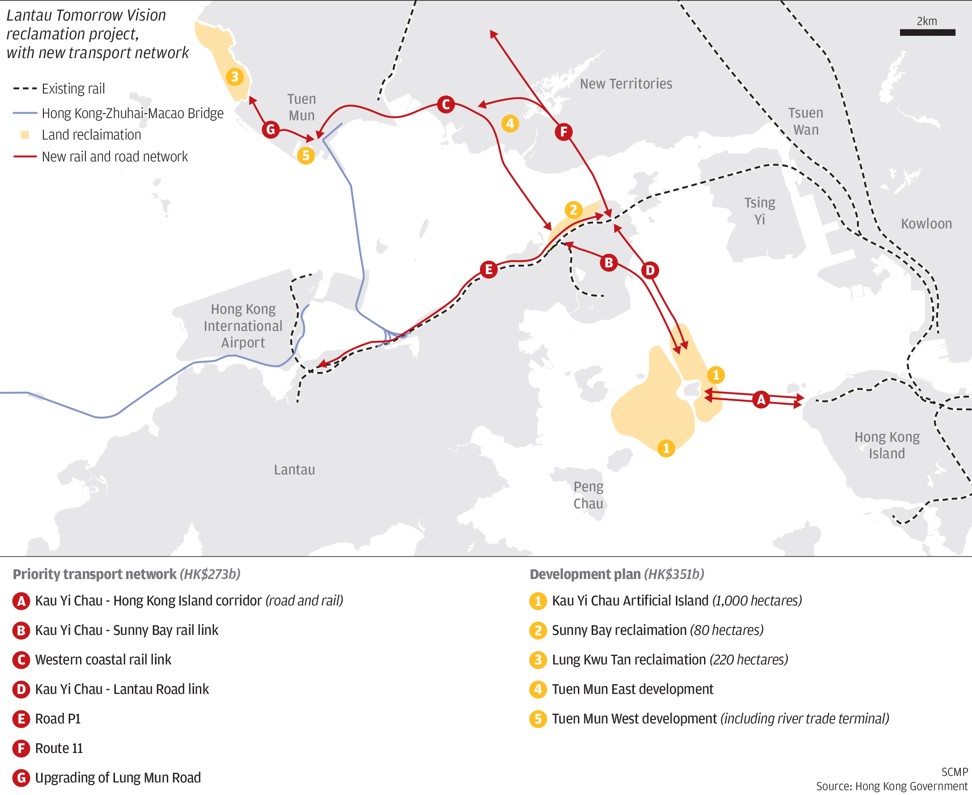
HK$624 billion Lantau reclamation project will be most expensive in Hong Kong’s history, but city will recoup costs, government says
- Development chief Michael Wong dismisses concerns cost of Lantau Tomorrow Vision project will wipe out more than half of city’s fiscal reserves
- Scheme will entail massive reclamation to build artificial islands and new transport network to create city’s third business district and housing hub

The controversial plan to build a new metropolis to the west of Hong Kong Island will be the most expensive infrastructure project in the city’s history at an estimated cost of HK$624 billion (US$80 billion), the government has revealed.
Unveiling details of the ambitious Lantau Tomorrow Vision project on Tuesday, Secretary for Development Michael Wong Wai-lun dismissed concerns that the enormous cost would wipe out more than half of the city’s fiscal reserves, which are estimated to stand at HK$1.16 trillion by the end of March.
The project will entail massive reclamation to build artificial islands and a new transport network to create Hong Kong’s third business district and housing hub.
“Usually the government does not reveal cost estimates before we conduct studies for a project,” he said. “But the public is concerned that the project might empty our coffers. Our conclusion is that it will not.”

Wong said officials would start a detailed study to come up with more accurate estimates, and the government would ensure the scale of reclamation would be in keeping with “balanced and sustainable development” for Hong Kong.
The huge cost would eventually be recouped, he said, citing what he called a “conservative” estimate by the Institute of Surveyors that put the potential land revenue from the artificial islands at between HK$974 billion and HK$1.143 trillion. The institute’s estimate was based on February prices, and the government’s cost estimate was based on September 2018 prices.
The Lantau Tomorrow Vision was announced by Chief Executive Carrie Lam Cheng Yuet-ngor last year.
It will include reclamation of 1,000 hectares of land in the waters off Lantau Island around Kau Yi Chau, and reclamation in Sunny Bay and near Lung Kwu Tan in Tuen Mun, at a total cost of HK$351 billion.

“The project will spare us from continually relying on development in the northern New Territories and putting too much population pressure on the area,” Wong said.
Another HK$273 billion will be spent on building a new transport network that will include three rail links and three major roads connecting Hong Kong Island, Lantau, the future artificial islands and Tuen Mun – parts of which will be sea crossings.
The record cost is partly because of a so-called transport-led approach, as roads and rail links will be built before the first residents move in, in a departure from past town-planning practice.
Authorities expect the artificial islands to provide up to 260,000 flats, 70 per cent of which will be set aside for public housing.
Reclamation work is scheduled to start in 2025 and the first residents are expected to move in by 2032.
Wong said the government could afford the project as the cost would average out to around HK$40 billion to HK$50 billion annually over a span of 15 years.
Treasury officials were also considering various methods to finance the project, he added, including issuing bonds and allowing MTR Corporation-style property development along railway lines.
Even if the government did opt for bonds, he said, it would not be for lack of money but because it wanted to share the returns with the public.
One of eight options recommended by a government-appointed task force on land supply, the Lantau reclamation proposal has raised concerns about both environmental and economic costs.
Wong said there would be no more consultation on whether the reclamation should go ahead, because the task force had already taken public feedback into account.
Addressing material cost concerns, Wong said half of the city’s annual production of 15 million tonnes of construction waste could be used to fill the sea, cutting reliance on imported sand. Mechanical sand, made by machine-crushing rubble, would be used instead of more expensive marine sand, he added.
The minister also dismissed concerns about the artificial islands not being able to withstand the impact of climate change, saying the land formed would stand at least six metres (19 feet) above sea level – the same as Hong Kong International Airport, which sits on an artificial island and was able to survive the onslaught of Super Typhoon Mangkhut last year.
Opposition lawmaker Eddie Chu Hoi-dick said Wong had provided a “misleading” picture of the costs because he was not basing his calculations on money-of-the-day prices or factoring in inflation, otherwise the final bill could be more than HK$1 trillion by 2025.
The Civic Party also expressed concern about cost overruns, citing most of the major infrastructure projects in recent years.
The pro-establishment Democratic Alliance for the Betterment and Progress of Hong Kong said it would support the funding proposal as the scheme would help solve the city’s land shortage.